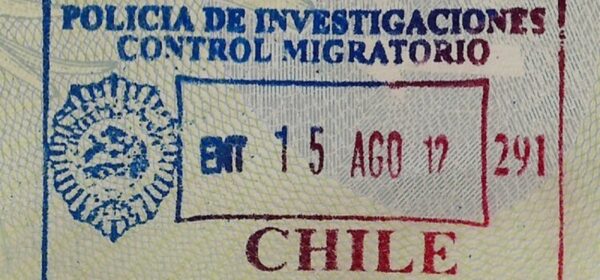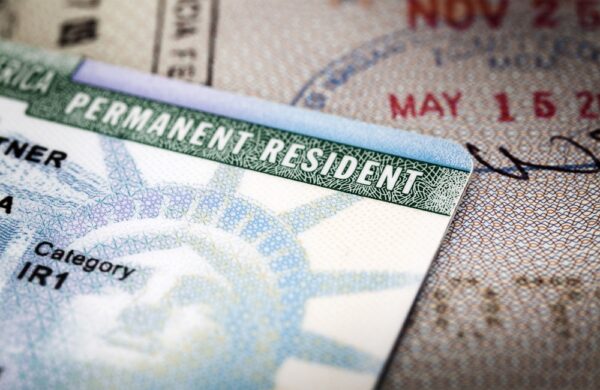One of the common immigration questions people ask is, “How long does immigration take? If you're asking this question, you're either planning your immigration journey or you've applied already with your application in view. While the answer to that question can't be quantified, having an idea of what to expect will help you know if your application is taking longer than normal or if it's still right on track. We'll explain factors affecting immigration processing timeline, average processing time, and how to fast-track the process.
Factors Affecting Immigration Processing Timeline
The answer to the question “How long does immigration take” is not definitive as there are lots of factors that play a role in the length of your immigration process. However, here are some of the key factors:
1. Visa Type
Whether you know it or not, the type of visa you're applying for plays a major role in the duration of your application. It's important to know that different visa types require different requirements and procedures. This translates to different processing times, which is why some applications might take longer than others.
Let's take the US family-based immigration, for example. If you are an immediate relative of the primary visa holder, such as a legal partner and unmarried children, your visa would be processed faster than that of an extended relative. The same thing goes for work visas. Different work visa types, like the H-1B or O-1 visa for highly skilled workers, tend to be processed more quickly than a regular worker or someone seeking asylum in the country. When you understand the visa variation timeline, you'll be able to plan your application accordingly and be patient with how long the immigration process takes.
2. Change in Immigration Policies
Immigration policies change from time to time based on political, economic, or security reasons. Most times, these policies take a toll on immigration processing time frames. For instance, in the case of an immigration ban or new immigration laws, this could lead to slow processing time and delays. A popular example is during the COVID-19 pandemic when many countries implemented temporary immigration shutdowns.
3. Country of Origin
Your country of origin plays a big role in your immigration timeline and application process. If you're asking how long immigration takes, then you should be asking how your home country affects your immigration process. When it comes to people from countries with a high demand for certain types of visas, like India, China, etc., there's usually a tendency that the application process might take a while. Because of the high demand and the annual quota of these visas, some applications might not even be attended to.
Also, applicants from countries with high-security concerns might wait longer. Some might even undergo more rigorous background checks than applicants from secure and developed countries. Furthermore, the efficiency of your consulate or local embassy also matters in your application. If you're from a country where there's a high volume of applications with little staffing allocations, it might result in a longer consular processing time.
4. Your Destination of Choice
The host country you are applying to is as important as your country of residence. As we said earlier, the immigration policies of your destination play a major role in your application outcome. Countries like the UK, the US, Canada, and other developed countries have amazing immigration packages that welcome foreign nationals from across the world. However, they often operate under stricter quotas, especially for popular visa categories. Likewise, the efficiency of the processing system in your destination countries matters. If your destination country is a developed one like the UK, US, or Canada, you might experience a quick response due to their adoption of a digitalized system. However, this might not be the case for destinations that still use manual systems.
5. Quality of Your Documentation
One of the immigration factors affecting timeline processing you can control is the quality of your documentation. While other factors might be out of your control, you have the power over how to make your application. Submitting incomplete or inconsistent documents might raise an eyebrow and cause delays or even rejections. In some cases, additional documents or requests for evidence are asked for missing documents. This means additional time to the initial processing time. Also, incorrect dates and mismatched details between your forms and supporting documents might slow down the application process. Take your time when applying, and don't rush when filling out forms and gathering your documents. Also, cross-check the eligibility criteria and ensure that you meet all eligibility requirements.
Average Processing Time for Immigration Process
We've established the various factors that might affect the immigration timeframe. So, we'll talk about the median processing time for some key application categories.
Employment-Based Immigration
When it comes to applying for international employment, the type of employment visa primarily determines the processing duration. Likewise, the demand for the job role you're applying for in your host country determines if you'll experience a quick approval. While some visa applications might take weeks some might take a few months or even years. Applying for the wrong employment visa type might also cause a delay. To avoid this, you must ensure to meet all eligibility requirements for the immigration category you're applying for.
Investment-Based Immigration
Although many countries look forward to international investors, we can't brush off the long processing duration of an investment visa. The investment immigration timeline is somewhere between 6 months and a couple of years. This long duration is due to the scrutiny of investors' medical examination, financial capability, and personal background. All of this is to make sure that any foreign investor coming into the country is eligible and can deliver on their investment promises.
Family-Based Immigration
Applying for a family-based or reunification visa usually takes longer due to additional verification of relations and background checks. Proof of relation, such as marriage certificates and the immigration status of the primary holder, is important for this application. On average, the immigration timeline for this visa takes between 6 months and a couple of years. This is based on the country of origin, host country, application quality, and workload allocations at the consular.
Student Visa
Since the student visa is a non-immigrant visa, it gets more priority with an average processing time of 1-3 months, depending on the host country, school, and academic calendar. Also, as long as you make your application correctly, you have no reason to panic. The United States F-1 visa takes between 2 weeks to 3 months. Canada, on the other hand, processes student permits under 4 to 12 weeks. Topping the chart is the United Kingdom and it's no surprise many international students aim at studying in the UK as the processing timeframe takes 3 to 8 weeks.
Permanent Residency
Generally, permanent residency, popularly known as the Green Card in the US, takes between a year to 5 years, depending on how you entered the country. It is also dependent on the specific requirements of your host country. Just ensure you put your permanent residency checklist together to make your application seamless. For key countries like the United States, a processing timeframe of 1 to 3 years might be needed to secure a green card for a good application and might take about a decade based on different reasons. Australia, however, offers a shorter time frame of 12 to 18 months, especially for skilled workers. Canada express entry, however, takes a processing time of 6 to 12 months.
Citizenship
If you want to make your host country your permanent home, the citizenship immigration process is the way to go. The average wait time for this process starts from one year and above, depending on your host country, how well your citizenship interview went, and whether you meet the residency criteria.
How Can I Fasttrack My Immigration Process?
To avoid getting caught up in the web of delayed immigration, it's important to know how to go about it and how to fast-track your immigration process.
1. Choose The Right Visa Pathways
It's important to pick out the right visa pathways to avoid going back and forth at the immigration consulate or embassy. Choosing the right visa goes a long way in determining the outcome of your visa. Research the suitable visa type for your immigration goal and ensure you meet the eligibility criteria and visa requirements.
2. Submit a Consistent and Complete Application
Incomplete and incorrect documents are always at the top of the list of common causes of immigration delays. Avoiding mistakes and making a consistent and complete application will reduce the risk of processing delays. Double-check all your documents before submitting them, and also check for errors and inconsistencies across your documents.
In addition, submit all required and supporting documents, such as an employment contract, proof of funds, educational background, etc. Also, respond quickly to any requests for additional documents from immigration officials.
3. Apply Early and Track Your Application
You can never go wrong with applying for your visa early before your intended travel date. As long as you have a quality application, you will be able to beat deadlines. Go for your interview and biometrics appointment early so you can avoid periods where the application exercise is on the high and processing time may take longer.
Also, once your application is complete, it's important to track it in case there's a need for additional documents and information. You can do this by monitoring the application portal of your destination country. Likewise, your email and phone number should always be reachable.
4. Work With Professional
Working with professionals such as immigration advisers and legal experts can help you have a seamless application process. Since a clear and well-documented application is what immigration authorities look forward to, an experienced immigration lawyer or adviser can help you achieve that. Immigration professionals can also help you navigate the immigration laws of your destination country. They can also help with preparation for interview appointments and offer guidance on how to approach any possible issues.
5. Use Expedited or Premium Processing
Even after choosing the right visa and making a quality application, immigration delays can still happen because there are some factors you can't control. However, if you want to stay above any delay at all, there's an option for expedited processing whereby your application will be made a priority but for an additional fee. Going through the premium or expedited processing drastically reduces your waiting time.
Conclusion
Knowing how long immigration takes can help you plan accordingly. Now that we've explored the factors affecting immigration timelines, it is important to note them and work on those within your control. Whether as a student, worker, investor, or green card applicant, you should understand all requirements and get an immigration expert if you have to. Likewise, you can get expedited processing if you have deadlines to beat. Good luck!
















